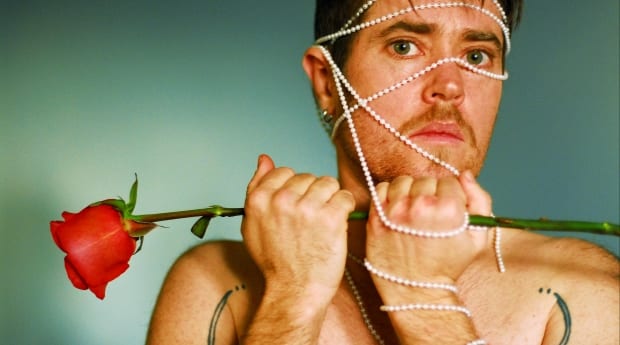Now in its ninth year, Buddies’ Emerging Creators Unit (formerly known as the Young Creators Unit) is not only one of the country’s most important spaces for queer youth expression. It’s also one of Toronto theatre’s most successful development platforms. Among the shows produced through the series, many have gone on to win awards and tour nationally including: Waawaate Fobister’s Agokwe, Tawiah M’carthy’s Obaaberima and Shaista Latif’s Graceful Rebellions.
Since its inception, the series thrived under the gentle hand of director Evalyn Parry. But when she took the job of Buddies’ artistic director, that meant passing the reins to someone else. Enter Sunny Drake. Originally from Australia, the trans artist relocated to the Big Smoke five years ago and has been tearing up stages since with his unique brand of confessional performance.
Daily Xtra caught up with Drake to chat about his plans for the series and why youth programs are important.
Daily Xtra: What are you looking for when selecting people and what are you hoping they’ll get out of the program?
Sunny Drake: We’re looking for emerging artists with something to say and an artistically compelling way to say it, who are ready to be in the driver’s seat of their own work within a supportive environment. We’re prioritising voices and content which don’t get enough air space in Toronto and beyond. I hope the participants come away with more confidence in their creative processes, new creative tools, networks and profile to propel them into the futures.
I understand there’s a new approach you’re taking. What changes are you making?
The most significant change is raising the age limit from 25 to 30. From contact with young and emerging artists around the world, I’ve found there are so many different career trajectories that are equally valid. Some folks are busy surviving in their early twenties, particularly those from marginalised communities, and are only in a position to dedicate more time to their creative practice a little later. We can certainly support artists in techniques of performance creation. What’s more difficult to cultivate are ideas around what to make and why to make it. By raising the age I hope we can offer space for those with important stories and life experience, who are coming into themselves as creators a little later.
A second shift is to place more emphasis on different options for the creative roles of participants. In the past, works have all been one person shows performed by the writer themselves. The YCU had in fact been open to alternatives for a number of years. This year we increased our focus on encouraging an array of different proposals. For instance, we’re open to collaborative applications by up to two emerging artists, or a participant can write and create the work, then direct it casting professional actors.
Have you ever been involved in a youth program yourself?
I’ve been extensively involved in running youth programs, but never got to be a participant. When I was a youth, there were hardly any queer youth programs, probably no trans youth programs, let alone queer or trans creative programs. My art-making and performance style was also non-normative, so I didn’t exactly fit into the straight theatre or art worlds either. After pretty much just making shit up and doing my own thing for a number of years, I began running performance and art programs for young people. I really didn’t know what I was doing at first, but managed to find some great mentors.
In a sense, I have a selfish interest in running this program. The more breadth and depth of queer and trans artistic voices we cultivate, the more freedom I and other artists have to make work about whatever we feel most connected to.
What’s got you most pumped for the coming year?
We’ve got such a fabulous group of emerging creators. Each of them has a vital perspective and a solid base from which to grow alongside each other. It was heartening to see them immediately opening up in a space where they could discuss and bond over commonalities and where we also aim to cultivate respect for our differences. I’m also very excited to see how our collective fashion evolves. Already in the first three weeks of workshops, we’ve been spontaneously co-ordinated. Although I’m hoping we can progress from grey jeans to a multi-coloured sequined wardrobe.
Check out all the 2015 Emerging Creators Unit participants and watch for Daily Xtra’s profiles on each of them in the coming months.
buddiesinbadtimes.com


 Why you can trust Xtra
Why you can trust Xtra


